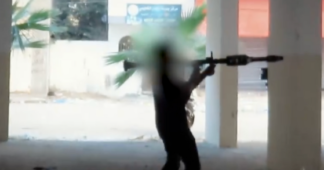Forcibly displaced Gazans began their journey home with a mix of hope and resilience after enduring 471 days of relentless bombings, a total blockade, harsh winter conditions, and the sheer struggle to survive against all odds.
Jan 19, 2025
The ceasefire agreement between “Israel” and Hamas officially came into effect today, Sunday, at 8:30 a.m. local time (6:30 a.m. GMT), raising hopes for an end to the 15-month-long Israeli offensive on Gaza.
The Israeli genocide has caused widespread devastation, leaving tens of thousands dead, injured, or missing and displacing millions of residents.
In the agreement’s initial six-week phase, 33 captives held in Gaza will be released in exchange for 737 Palestinian detainees, according to the Israeli Ministry of Justice.
Negotiations for the second phase, aimed at achieving a “definitive end to the war,” will take place concurrently, Qatari Prime Minister Muhammed bin Abdulrahman Al Thani announced earlier.
US President Joe Biden clarified that the second phase would focus on freeing the remaining Israeli captives. The final phase is expected to center on rebuilding Gaza and returning the remains of Israeli prisoners who died in captivity.
People came out in droves to celebrate the ceasefire in Gaza this morning, and Hamas’ al-Qassam Brigades joined the celebrations in military vehicles.
Anticipation and tension in Gaza
In the war-ravaged Gaza Strip, forcibly displaced residents are eager to return home. However, the Israeli occupation forces had warned “Gazans not to approach areas where troops remain when the ceasefire begins.”
“We urge you not to head toward the buffer zone or IDF forces for your safety,” military spokesperson Avichay Adraee said on Telegram.
“At this stage, heading toward the buffer zone or moving from south to north via Gaza Valley puts you at risk. Anyone heading toward these areas endangers themselves,” he added.
Netanyahu once again throws a wrench in plans
In a last-minute development, Israeli Prime Minister Benjamin Netanyahu tried to throw a wrench in the plan, announcing that the ceasefire set to begin this morning will be delayed due to what he claims is “Hamas’s failure to provide a list of hostages scheduled for release.”
The Prime Minister’s Office confirmed that Netanyahu held an overnight security meeting to address “the delay in receiving the list of hostages expected to be released.” He made it clear that “the ceasefire, scheduled to take effect at 8:30 a.m., will not begin until Israel has the list of hostages to be released, which Hamas has pledged to provide.”
Hamas, meanwhile, attributed the delay to mere technical issues, saying it is committed to the agreement.
Israeli reactions to the ceasefire
Many Israelis expressed anger and opposed the agreement, viewing it as a concession that solidified Hamas’s status as the victor in the war.
Former Israeli general: Hamas is the victor
After 470 days of relentless attacks on Gaza, aimed at eliminating Palestinian Resistance, Former IOF Major General Giora Eiland has admitted that the war ended in a “resounding failure for Israel” and declared Hamas the victor.
Speaking to Channel 7 on Saturday evening, Eiland stated that “Israel” had failed to achieve its declared objectives. “Hamas will recover from the severe blow it suffered, not all the hostages will return, and Israel will not eliminate Hamas’s authority,” he acknowledged, reinforcing earlier critiques of the war’s outcomes.
Protests in Tel Aviv over captive exchange deal
Ahead of the ceasefire’s implementation, Tel Aviv saw widespread protests by settlers opposing the prisoner exchange deal. Demonstrators clashed with police, who deployed skunk water to disperse the crowds.
According to Israeli media, protesters expressed outrage over the agreement, demanding its cancellation. They argued that the deal “will release hundreds of Palestinian detainees, erase the achievements of the war, and pave the way for another attack similar to October 7.”
Ben-Gvir threatens to leave government coalition over Gaza ceasefire
Far-right Israeli Police Minister Itamar Ben-Gvir announced Thursday that his Otzma Yehudit party would leave the coalition government if the recently mediated ceasefire agreement with Hamas is approved.
Ben-Gvir sharply criticized the deal, describing it as “reckless” and claiming it includes concessions that undermine the Israeli occupation achievements. “The agreement involves releasing hundreds of murderers, the return of hundreds of thousands of Gaza residents to the northern sector, including thousands of terrorists, withdrawal from the Philadelphi Route, and a ceasefire,” he stated. According to Ben-Gvir, the deal “ends all the accomplishments we have achieved for the state and does not ensure the release of all the hostages.”
Emphasizing his party’s position, Ben-Gvir declared that Otzma Yehudit, under his leadership, “does not topple Netanyahu nor cooperate with the left and its goals against the government. However, we cannot remain part of a government that approves a deal providing a significant reward to Hamas and risks another catastrophe like October 7.”
This comes as Netanyahu faces mounting internal pressures in light of the ceasefire deal. His key far-right allies have expressed strong opposition to the deal even though it would get the captives out of Gaza.
Police Minister Itamar Ben-Gvir has publicly rejected the agreement, while Bezalel Smotrich, leader of the Religious Zionism party, voiced his concerns on X late Wednesday. Smotrich called the deal “bad and dangerous” for the Israeli occupation and demanded “absolute certainty” that the military could resume operations in Gaza if necessary.
We remind our readers that publication of articles on our site does not mean that we agree with what is written. Our policy is to publish anything which we consider of interest, so as to assist our readers in forming their opinions. Sometimes we even publish articles with which we totally disagree, since we believe it is important for our readers to be informed on as wide a spectrum of views as possible.











